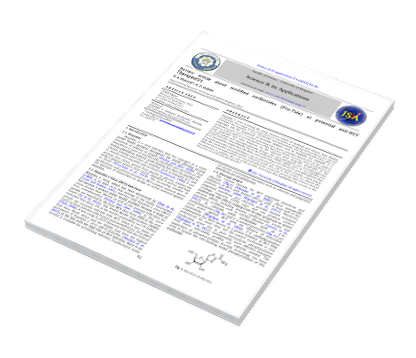Review article about modified nucleosides (Pro-Tide) as potential anti-HCV Therapeutics
DOI:
https://doi.org/10.37376/ljst.v5i1.2253Keywords:
Hepatitis C, Antiviral, Nucleoside, ProTide, Monophosphates, Monophosphonate.Abstract
Hepatitis C virus is among the most common causes of cirrhosis and chronic liver disease worldwide. As
a result, many researchers are interested in designing and synthesis of a clinical treatment for hepatitis
C virus. Nucleoside monophosphates and monophosphonates play an important role for treatments of
incurable diseases such as hepatitis. For example, 2'-Cmethyladenosine and 2'-C-methyl guanosine have
shown activities against HCV in the replicon assay as well as against several members of the flavivirus
family. However, their development as drug molecules has been hindered by the inherent poor drug-like
properties of the monophosphate and monophosphonate groups. The monophosphate and
monophosphonate groups have low bioavailability due to the inefficient cellular uptake, poor in vivo
stability and poor intracellular metabolism, the latter drawback being most relevant to monophosphates
than monophosphonates. These limitations can be addressed by using portide strategy, which able to
help the nucleoside monophosphate delivered inside the cell. In this review, we discuss the different
keys monophosphate and monophosphonate nucleoside prodrugs that entered clinical development. In
addition, the role of the protide technology that highlighted the success in the discovery of nucleoside
therapeutics.
Downloads










 LJST Copy rights form
LJST Copy rights form


